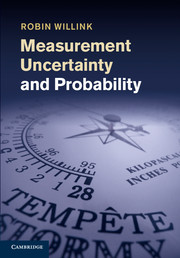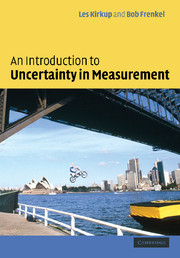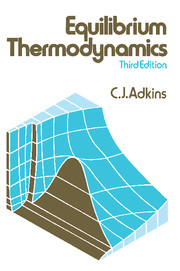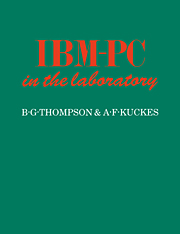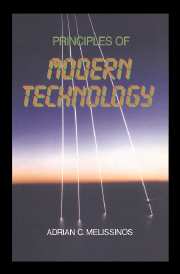Measurement Uncertainty and Probability
A measurement result is incomplete without a statement of its 'uncertainty' or 'margin of error'. But what does this statement actually tell us? By examining the practical meaning of probability, this book discusses what is meant by a '95 percent interval of measurement uncertainty', and how such an interval can be calculated. The book argues that the concept of an unknown 'target value' is essential if probability is to be used as a tool for evaluating measurement uncertainty. It uses statistical concepts, such as a conditional confidence interval, to present 'extended' classical methods for evaluating measurement uncertainty. The use of the Monte Carlo principle for the simulation of experiments is described. Useful for researchers and graduate students, the book also discusses other philosophies relating to the evaluation of measurement uncertainty. It employs clear notation and language to avoid the confusion that exists in this controversial field of science.
- Proposes a classical performance-based approach to the analysis of measurement error and uncertainty
- Extends classical statistical principles in a way that fits the measurement context, giving intervals of measurement uncertainty a practical meaning
- Distinguishes different statistical concepts and objects using notation and language
Product details
February 2013Adobe eBook Reader
9781139603737
0 pages
0kg
43 b/w illus.
This ISBN is for an eBook version which is distributed on our behalf by a third party.
Table of Contents
- Part I. Principles:
- 1. Introduction
- 2. Foundational ideas in measurement
- 3. Components of error or uncertainty
- 4. Foundational ideas in probability and statistics
- 5. The randomization of systematic errors
- 6. Beyond the standard confidence interval
- Part II. Evaluation of Uncertainty:
- 7. Final preparation
- 8. Evaluation using the linear approximation
- 9. Evaluation without the linear approximations
- 10. Uncertainty information fit for purpose
- Part III. Related Topics:
- 11. Measurement of vectors and functions
- 12. Why take part in a measurement comparison?
- 13. Other philosophies
- 14. An assessment of objective Bayesian methods
- 15. A guide to the expression of uncertainty in measurement
- 16. Measurement near a limit – an insoluble problem?
- References
- Index.

